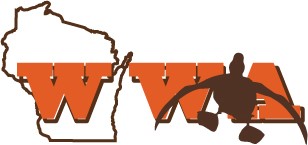| Your input matters, and upcoming public meetings and other options to submit comments put you in the driver’s seat to help shape upcoming hunting seasons. Take a look at the proposed season structure and submit feedback during March public hearings, via written comment and through our online input tool.
Click here to view proposed waterfowl seasons. You can also find these proposals and other helpful information regarding migratory bird hunting in Wisconsin by visiting dnr.wi.gov and searching keyword “waterfowl.”
There are a few notable changes in 2020 compared to past proposals, which include:
· Early teal season proposed for nine days;
· Proposed hen mallard bag limit increase to two per day;
· North Zone regular duck season opening a week before the South Zone
· Mississippi River Zone regular duck season framework mirroring South Zone
· 2021-2025 waterfowl zone configuration replaces the Mississippi River Zone with an Open Water Lake Michigan/Green Bay Zone.
Public hearings will be held at the following locations, starting at 7 p.m.:
· Monday, March 9, La Crosse – State Office Building, Rooms B-19 and B-20, 3550 Mormon Coulee Road;
· Tuesday, March 10, Rice Lake – AmeriVu Inn, 1710 South Main St.;
· Wednesday, March 11, Appleton – Fox Valley Technical College, D.J. Bordini Center, Room BC141, 5 N. Systems Drive; and
· Thursday, March 12 – Pewaukee – Wildwood Lodge, N14 W24121 Tower Place.
Public comments regarding proposed migratory bird season structure will be accepted at each public hearing. Public input will also be accepted through an online public input tool through midnight Friday, March 13. This tool will walk users through season structure options and Department of Natural Resources proposals.
If you are unable to attend a public hearing or wish to provide feedback directly, public comments will be accepted through midnight Friday, March 13. Written comments can be sent to Taylor Finger or Jeff Williams, Wisconsin DNR, PO Box 7921, Madison, WI 53707, via email to: taylor.finger@wisconsin.gov or jeffrey.williams@wisconsin.gov or by calling 608-261-6458.
Following the public comment period, the final waterfowl season structure will be set by the Natural Resources Board at its April 7-8 meeting in Madison. As always, DNR staff appreciate time spent by waterfowl hunters each year providing feedback and playing a key role in migratory bird management.
For more information regarding migratory bird hunting in Wisconsin, visit dnr.wi.gov and search keyword “waterfowl.” |
